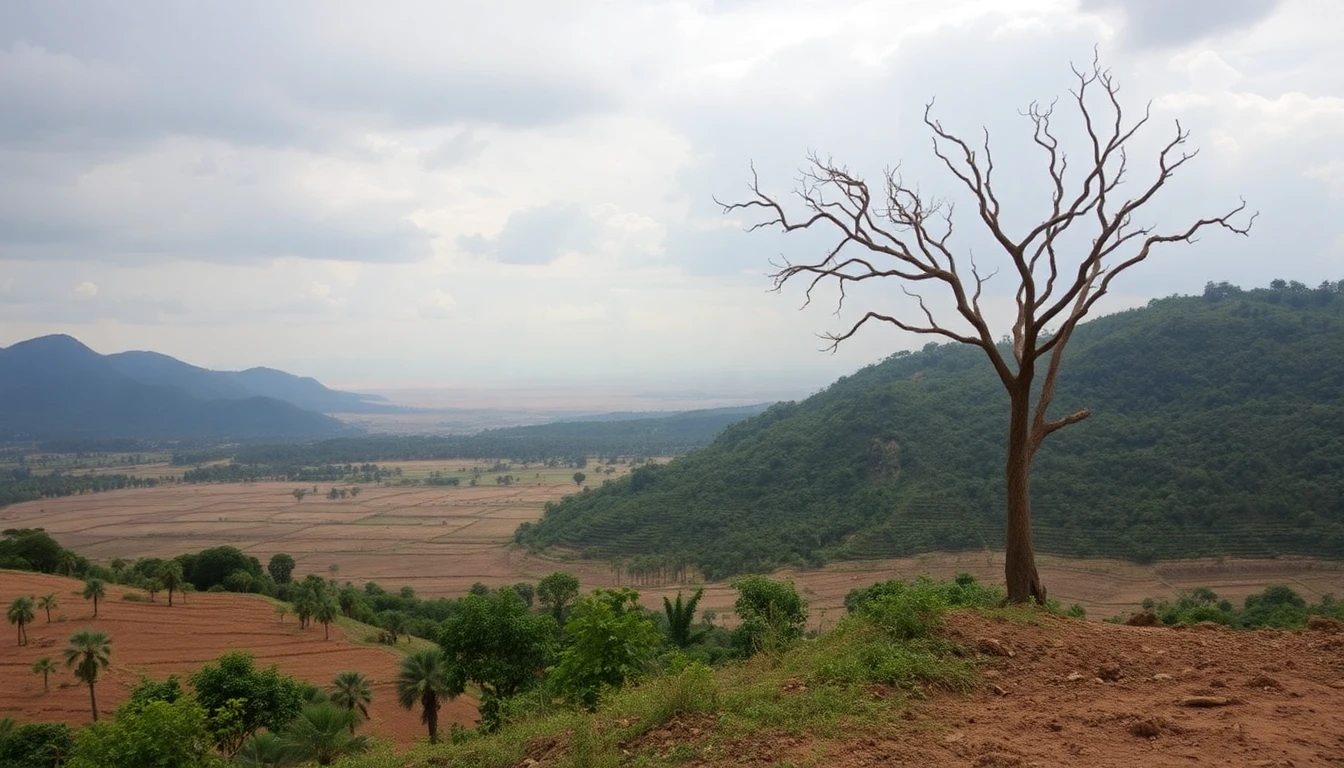
Brazil is a country rich in natural resources and one of the leading agricultural powers, which is now facing what analysts are describing as the worst drought in the history of the nation. The acute climatic problem is already showing its far-reaching effects, not only within Brazil but also in the global food markets and the economic scenario.
The start of the drought has made inaccessible one of the longest watercourses in South America, the Paraná River, due to the radical reduction of its water level. It has radically altered hydroelectric power stations, so important for energy production in Brazil. With the drying of the reservoirs, electrical shortages and hikes in energy prices are threatening Brazil, thus passing the blunted weapon onto its heavy regions of industry.
Then, the drought really started to raise its flag on the agrarian sector when it began hitting some of the country's most important crops. Soybean, coffee, and sugar production is showing extreme yield losses in crops that play a basic role in local and international markets. Brazil, the world's largest soybean exporter and one of the main suppliers of sugar and coffee, entered at the edge of a budding crisis that could further accelerate worldwide food inflation.
With such a huge share of agriculture in Brazil's economy, the sector has made a significant contribution to its GDP. Many analysts say that, due to this flood, economic activity may slow down considerably. The reduction in export volumes and an increase in the domestic price adds more complexity to the situation. These aggravating factors have compelled the IMF to further slash the economic growth projections of Brazil.
Shrinking supply chains due to dwindling outputs from Brazilian farms have only managed to tighten international markets, ensuring that commodity prices fluctuate upwards. For instance, coffee prices have surged in most unprecedented ways, a factor that raises concern among global retailers reliant on Brazilian exports. What it means is that disruption to the interconnectedness of the markets could translate to higher costs for the consumers and eventually affect purchase patterns, by default, demand across continents.
Mitigation efforts against drought, though substantially hindered, are nonetheless in process. The Brazilian government works with various international agencies in short-term and long-term measures to alleviate the immediate pressures that this disaster imposes on the water and agriculture sectors-water conservation incentives, investing in drought-resistant technologies, infrastructural improvement to manage the flow of water.
The experts say that these extreme weather incidences, hence, might also be more frequent with wider implications for global climate change. They call for an increase in adaptive measures from policymakers to businesses. The focus is on sustainable practices and innovations that will be resilient enough to meet such natural challenges in the future to protect economies and livelihoods around the world.
This unusual drought brings into perspective some of the frailties even major economies have when it comes to natural calamities. Brazil, storming through this tempestuous waters, is a close watch by the world as everybody holds its breath to wait for the beginning of its recovery to restrain cascading effects on food security and economic stability worldwide.
The unfolding situation once again brings to the fore how connected this world of ours is and underscores a societal responsibility in collective resilience during the adversities of the environment.
#BrazilDrought #GlobalEconomy #FoodPrices #AgricultureCrisis #ClimateChangeImpact #EnergyCrisis #SustainableDevelopment #WeatherPhenomena
Author: Daniel Foster




